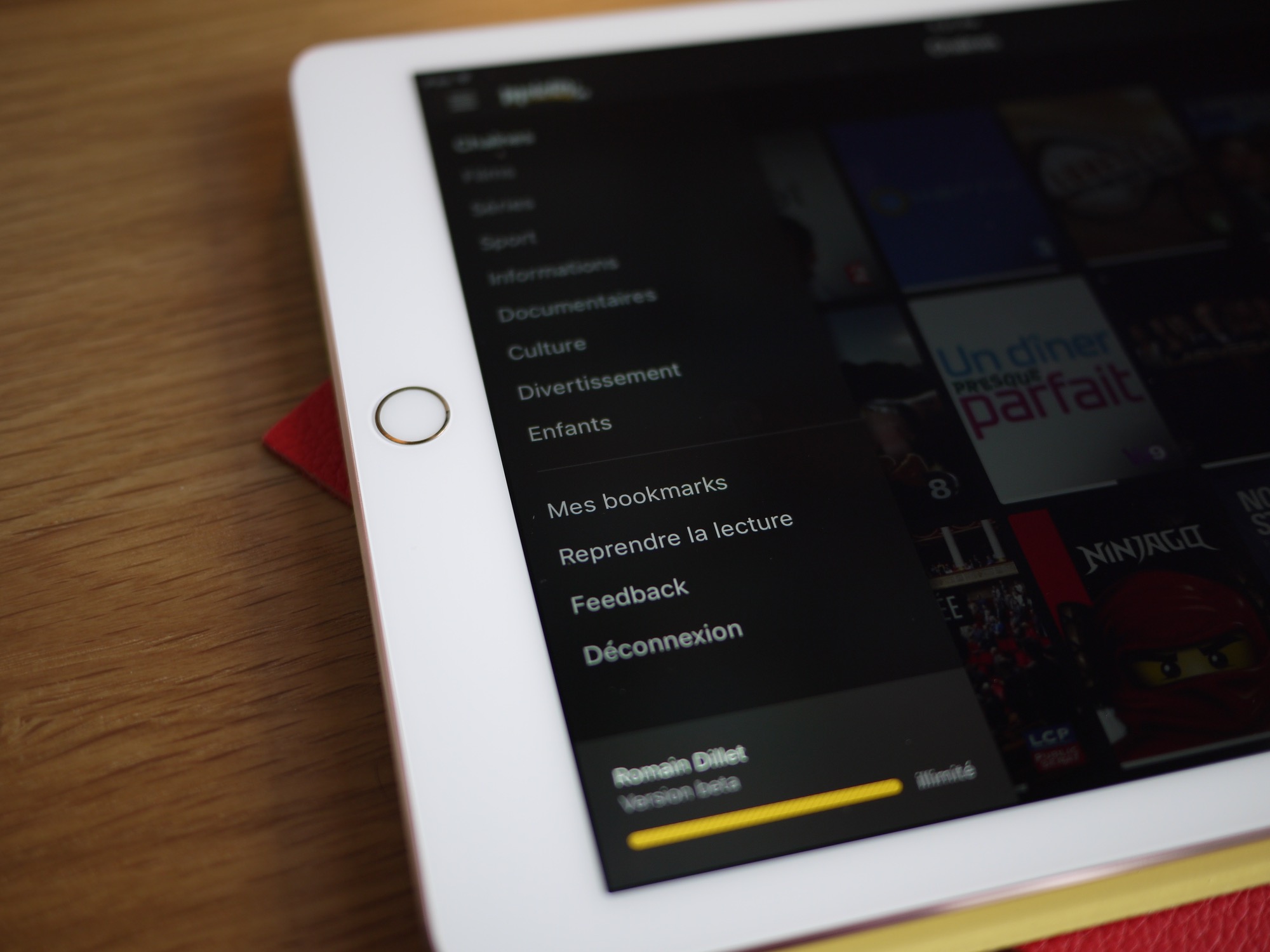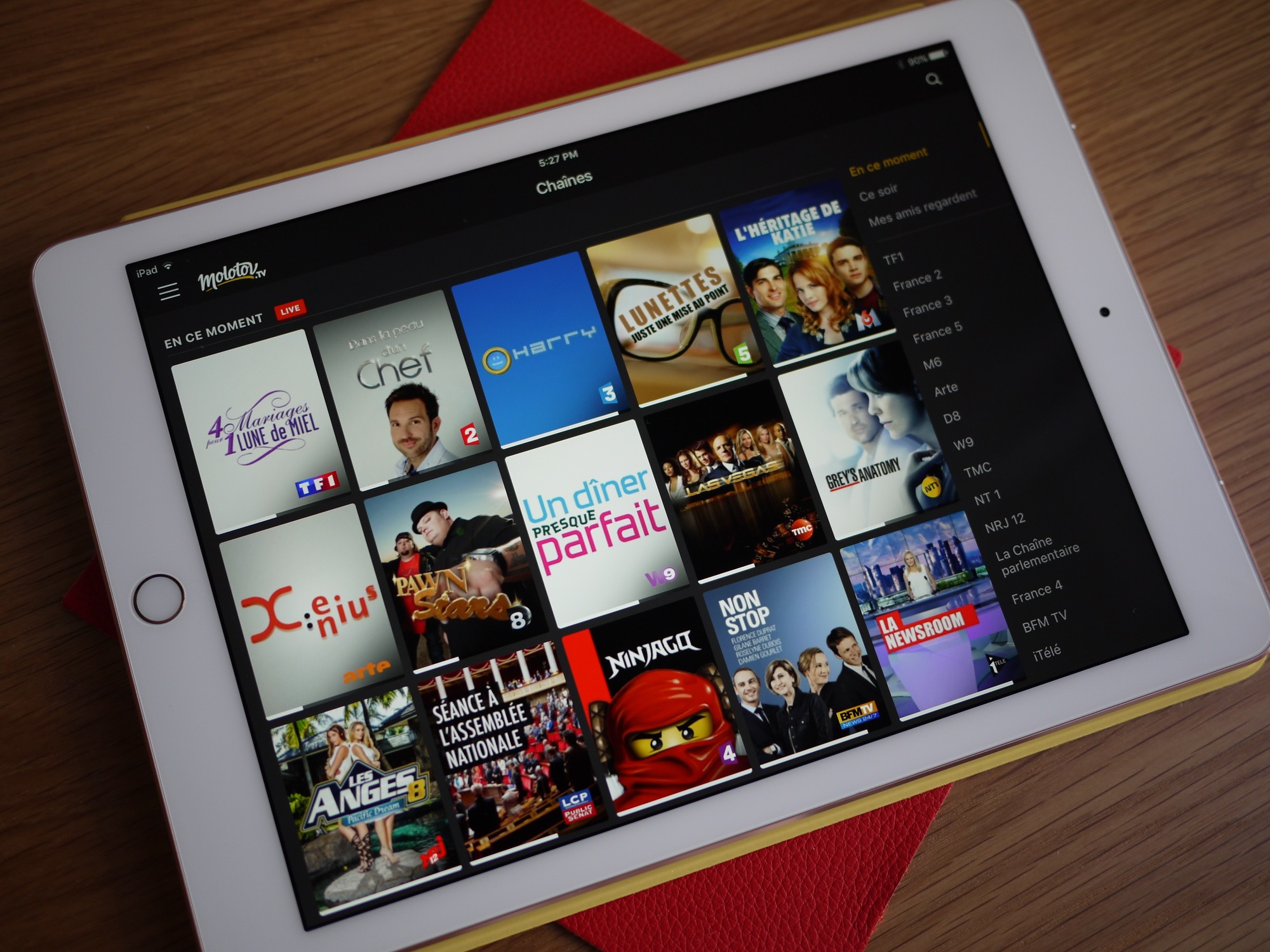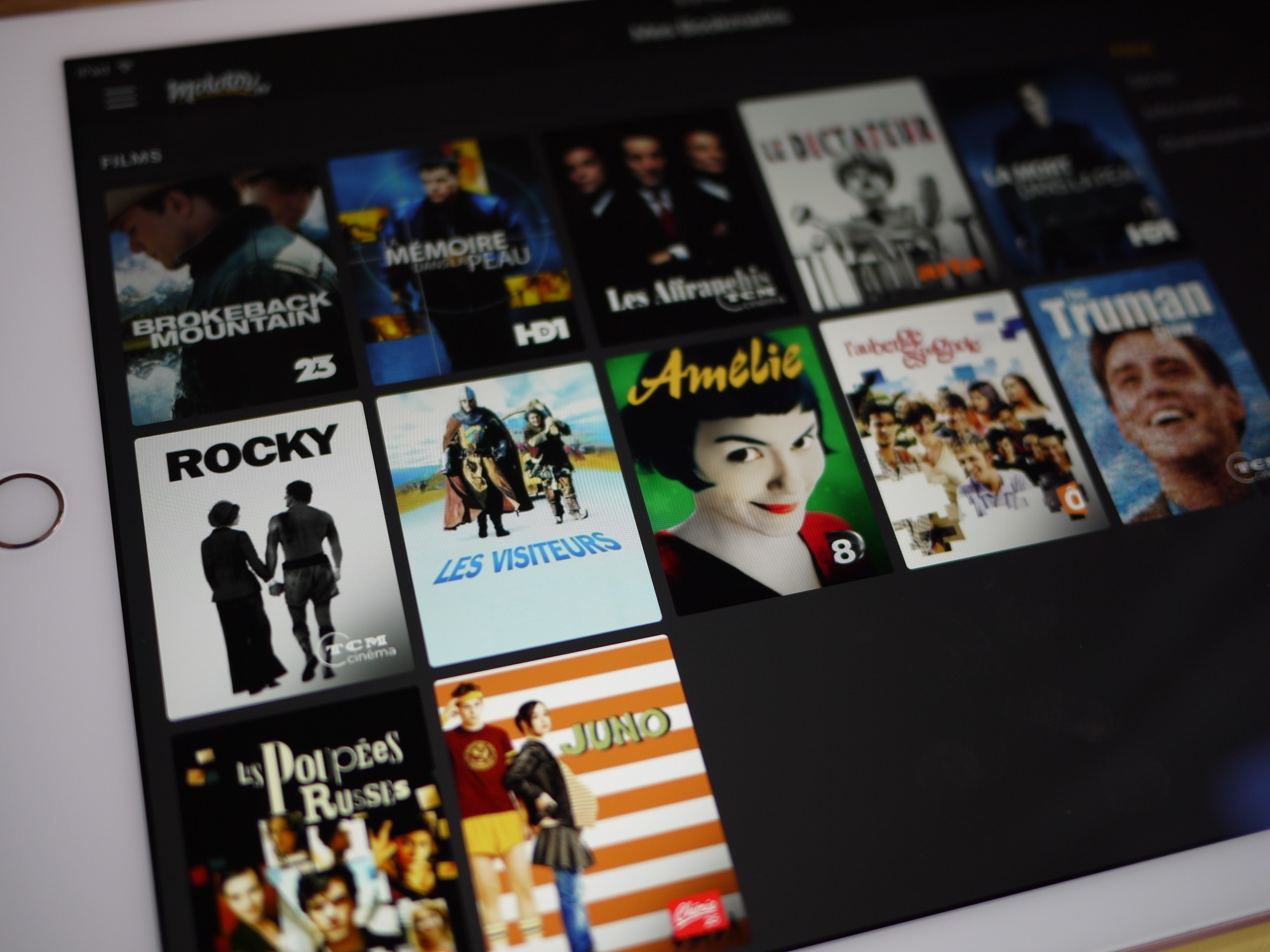For the smartphone generation, the idea that you have to sit in front of the TV at a very specific time to watch something is archaic and unconceivable.
And yet, I’ve been using Molotov for three months, and I can clearly say that the startup represents the future of TV.
Molotov is what Apple has been trying to build in the U.S. for months, or even years. But so far, Apple has yet to sign deals with all the major U.S. networks. It looks like the networks are still reluctant and want to build standalone services, leading to a giant fragmentation of TV content.
But the truth is out there, literally. French startup Molotov has been quietly working for more than two years on a seamless, flexible and universal TV service that lets you watch content at your own pace on all your devices — as long as you live in France.
“Molotov isn’t television, and it isn’t Netflix,” Molotov co-founder and CEO Jean-David Blanc told me. “It’s like TV, but we reinvented it.”
This kind of bold statements led me to paying close attention to Molotov and understanding what makes it different.

The facts
Using the service on my computer, my iPad and my TV has been a surprisingly good experience. I didn’t expect to open Molotov so often, and I’m sure millions of people will feel the same way. At first, they won’t expect much. Then, they’ll be hooked. There are three reasons why Molotov is uniquely positioned to take over the French market when it launches on July 11.
First, the service starts with partnerships. On this front, Molotov has taken advantage of its talented team to sign all of the major French networks. Molotov has everyone on board, from TF1 to France Télévisions, M6 and Canal+. And if that weren’t enough, the company also worked with countless smaller channels to put them on service.
Second, Molotov is nothing like turning on your TV and hopping from one channel to another. It mixes live content with previously aired TV shows and upcoming movies in a brand-new way. Molotov is another way to explore TV content.
Third, Molotov has more content than anything out there in France. Even better, the catalog changes all the time. In France, free TV channels can air movies a year before they appear on Netflix or CanalPlay — premium networks can even air movies two years before Netflix (and Netflix’s French catalog has been shrinking quite drastically. These free and premium TV channels are Molotov’s bread and butter.
“Netflix invests around €300 million every year for the French catalog,” Blanc said. “French TV networks spend €6 billion every year.”

The experience
I don’t watch TV. You could even call me a cord cutter, as I don’t have a cable box hooked up to my TV. And yet, something weird happened. Over the past few months, I’ve opened the Molotov app on all my devices more often than the Netflix app.
When it comes to finding something to watch, Molotov beats other services because there’s simply more to watch with many different ways to access your content.
Sure, you can watch what’s happening right now on TV. But the true power of Molotov lies in the other ways to browse content. I often find myself flicking through the list of movies that recently aired. In just a couple of taps, I can watch a movie right now. And if something has yet to air, I just bookmark it.
Similarly, there are countless interesting documentaries. If it weren’t for Molotov, I wouldn’t even know these documentaries exist. I often end up watching a science documentary that aired on an obscure TV channel. Molotov makes it easy to access this long-tail content.
And then there’s the search feature. If you like Star Wars, you can search for the movies. If you like Harrison Ford, you can also search for movies that feature him. Straightforward, right? But you can also search for Clint Eastwood and see all films starring or directed by Clint Eastwood. You can even search for someone like Tim Cook and catch up on all his interviews.
What if I don’t want to hunt for something new? I head over to the bookmark section. Here I can find all the movies, TV shows and documentaries I’ve saved for later. The bookmark feature is a sort of VHS recorder in the cloud. It’s like Pocket for TV content: You save something and you can watch it weeks or months later.
But the best part of Molotov is that it’s the same experience across all my devices. I can start watching a movie on my TV, then switch to my iPad in my bed. When I pick up my iPad and launch the app, the first screen lets me continue watching what I was watching.
I can scrub forward and backward on all content including live TV, switch the language to English for movies and TV shows and skip the ads.
There are many devices that let you pause TV, record things and more. But it’s often clunky experience and limited to your TV. Molotov is a well-designed, fluid service that bends to your needs. Over time, you tend to forget that TV was this inflexible medium.

The business
There’s some level of excitement around Molotov right now. When the company put up a landing page last summer, they were expecting a few hundred sign-ups for the beta test. Instead, the website was flooded with tens of thousands of sign-ups.
It’s clear that people are anxiously waiting for a service like Molotov to save them from their own crappy TV experience. It’s also clear that Netflix and CanalPlay don’t live up to everyone’s expectations.
Don’t get me wrong, I love Netflix original shows. But the service is becoming a delinearized premium channel instead of a Spotify-like streaming service for TV shows and movies — especially in France. We were promised a huge library of movies and content with Netflix, and all we got was a new HBO for the Internet.
“Netflix is like a lake. There are movies and TV shows and you pick them up from this lake,” Blanc said. “Molotov is more like a river — you can see upcoming shows arriving 15 days in advance, then you see them pass right in front of you like schooling fishes. And you can see them go away for another week.”
And this is smart, because Molotov is positioning itself as just a distributor. It doesn’t own the content, and it doesn’t want to bypass networks. Instead, the company is working with networks, respecting their channels and promising them a larger audience.
Now, there are a lot of challenges ahead. Can Molotov turn an amazing product into a successful company? Video streaming is an expensive business and only works at a large scale. In other words, Molotov needs millions of subscribers.
But it’s hard to persuade people to subscribe to something like Molotov if they can already watch TV one way or another. It’s even harder to persuade people who already subscribe to a couple of services.
That’s why Molotov is betting on a freemium offering. Finding the right balance between free and paid features is going to be key if the startup wants to succeed.
Molotov has already raised $11.2 million from Idinvest and a few business angels (€10 million). I’ve also heard from multiple sources that there were rumors about another much bigger round before launching this summer. Blanc says the company hasn’t pitched VC funds yet. Either way, the company will probably end up raising soon.
That’s because only a team like the one behind Molotov can build a service like this. The founders already know the TV industry inside out — at least in France. “I’ve built something in the cinema industry with AlloCiné. Now it would be really cool to make something successful in the TV industry,” Blanc said.
And it’s also the right timing, as French TV networks are realizing that working in silos will make them hit a plateau — we’ll see whether Molotov can quickly expand its service to other European countries. Google, Apple and smart TV makers are now all selling Internet-connected devices, as well, letting Molotov focus on software.
Molotov is definitely onto something. I wouldn’t be surprised if the company inspired big companies that have been trying to make a move in the TV industry.
Even more important, it wants to become the default way to watch TV in France. It’s a risky bet, but Molotov has the product to do it.































Comment